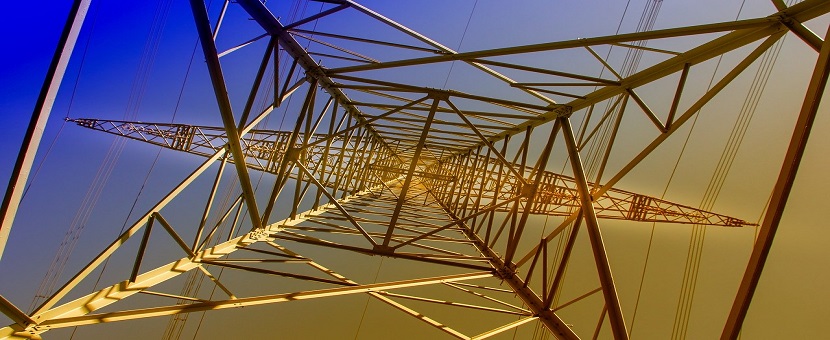Introduction
While still grappling with the pangs of several “harsh” economic policies of the Federal government in recent times, notably, the increase in VAT (Value Added Tax) and others numerous to mention, the populace woke up to the news of an upward review of the tariff payable by electricity consumers commencing from the month of April, 2020. The uproar generated by this news as well as the media attention was expected as there has been no improvement in the sector to warrant any increase in the tariff.
Duty to review
The Nigerian Electricity Regulatory Commission (NERC) had announced an upward review in tariff payable by consumers. This is in line with its duties under Section 32(1)(d) and 76 of the Electric Power Sector Reform Act (EPSRA), 2005.
NERC, according to its December, 2019 Minor Review of Multi-Year Tariff Order 2015 and Minimum Remittance Order for the year 2020 released in December 31, 2019 effective 1st January, 2020, clearly made it known that the current tariff rate being paid by consumers no longer allows for reasonable earnings for efficient operation by the Discos. This act of the regulator is based on the provisions of Section 17 of the Multi-Year Tariff Order MYTO, 2015 which empowers the regulator to hold a biannual reviews of the tariff chargeable taking into consideration realities that mostly do not fall under the control of the Discos. These realities include- Gas Prices, Foreign Exchange rates NGN/USD (using CBN official exchange rate), available generation capacity and Nigerian and United States inflation rates.
Every keen observer of the industry would in recent times been worried about NERC’s silence as regards its duty to ensure that the tariff payable to the Discos by the electricity consumers continues to be, at its least, cost reflective. This is more so as the Discos had continuously argued that it could not continue to render the required services to consumers on the prevalent tariff rate. The Discos had consistently maintained that part of the reasons they have failed to meet up with their responsibilities under the Minimum Remittance Order for 2019 is as a result of the fact that the prevalent tariff rate was no longer cost reflective which led to the recent situation where NERC issued Notice to Withdraw the license of about 8 Discos unless they show course within 60 days coupled with the mounting MDA outstanding debts.
Summary of the review
By the tenure of the extant Minor Review of Multi-Year Tariff Order 2015 and Minimum Remittance Order for the year 2020, all the Discos are obligated to meet up with their minimum remittance threshold prescribed in the order and can only earn their revenue requirement upon fully meeting with their obligations of 100% settling the Market Operator (MO) invoice, Repayment of CBN/NEMS facility in addition to settling their Nigerian Bulk Electricity Trading Plc. (NBET) monthly invoices as contained in their minimum remittance threshold.
It also provides that any Federal Government intervention with regards to the tariff shortfall from the financing plan of the Power Sector Recovery Program (PSRP) shall be routed 100% through the NBET and MO for the settlement of invoice issued by the market participants. This will in no mean way ensure accountability with regards to the disbursement of such intervention funds.
The Discos going forward are to be held responsible and penalised for any failure to meet up with their obligations to NBET and MO in offsetting the minimum remittance requirement within the market cycle in accordance with the Market Rules.
The Discos are also by the extant review compulsorily mandated to maintain an adequate, unencumbered and irrevocable letters of credit covering a period of three (3) months based on the minimum payment obligation.
The extant reviewed MYTO 2015 also provides that where the Transmission Company of Nigeria (TCN) is unable to deliver the load allocation of the Disco, TCN shall be liable to pay for the associated capacity charge but where the Disco fails to pick the entire load allocated to it as a result of constraint on its own network, the Disco shall bear the capacity charge payment as contained in its vesting contract.
It is hoped that this particular provision will put to rest the accusation and counter accusation usually between TCN and Discos as to picking and rejecting of allocated loads.
Public concern
The uproar generated by the recent review of MYTO-2015 by NERC is not unconnected to the fact that more than half of the consumers under the Discos are yet to be metered. The Meter Assets Provider Regulation 112 of NERC which came into effect since 2018 is, surprisingly, yet to be fully activated by some of the Discos. Restrictive implementation of the MAP Regulation by breaking into phases of areas to benefit from the metering exercise of the MAPs by some of the Discos is gradually making a mess of the entire process. The fact that none of the Discos within this category have been sanctioned by NERC have become a course for concern for the customers who will in a few months’ time be hit not only by the reality of paying more for electricity but by the fact that same will still be based on estimation as against actual consumption.
Secondly, the fact that some stakeholders do not believe that an upward review of the tariff will bring about any improvement in the services being rendered by the Discos to their customers is instructive. This is more so as the populace still views NERC as a toothless bull dog that can only bark but lacks the capacity to bite.
Conclusion
We must note that for the Nigerian electricity industry to reach its potential and aid in fixing the already battered economy, sincere sacrifices must be made by all stakeholders. It is not in doubt that the uproar that has greeted this upward review in tariff is as a result of the poor supply of electricity to the entire populace. The problem of poor electricity supply has obviously gotten so bad that an average Nigerian does not believe that any increase in tariff will bring about an ounce of improvement in the kind of services (s)he will receive from the Discos.
The mistrust that exists between the consumers on one hand and both the Discos and NERC on the other hand is still alarming. Unfortunately, NERC on one hand has failed to improve the confidence of an average consumer that it can actually drive home and enforce its policies for a better electricity industry in Nigeria.
In the final analysis, fighting and rejecting the extant tariff review will tantamount to serving the last nail on the coffin. The importance of a realistic and cost reflective tariff can never be overemphasised as same will boost the confidence of investors in the industry.
It is our opinion that both the Discos and NERC have to sit up if there is any hope of achieving full cost reflectivity by 2021 as projected by the PSRP of the Federal Government.
The regime where the Government continues to fund the shortfall between the cost reflective tariff as determined by the Government and the actual end-user tariff cannot be continually sustained if the industry is to remain afloat and serve its purpose to the populace.














